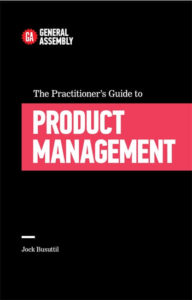
81: The unifying principles of product management
I’m writing about 100 things I’ve learned the hard way about product management. You can catch up on the previous entries if you like.
A recent tweet by John Cutler provoked some interesting reactions. It got me thinking about whether there are unifying principles of product management that apply in all contexts.
In this article #
The tweet that got me thinking
A large chunk of product management advice is targeted at 1) startups and/or 2) individual product management career advancement (eg “how can I get ahead”)
— John Cutler (@johncutlefish) July 9, 2021
The problem. 1) most PMs don’t work at startups and 2) product is a team activity.
“Startups and larger, established organisations do product management differently”
“Product management in B2C and B2B companies (especially in highly regulated industries) is different”
“People sharing advice can only speak from their own product management experience”
“Most product management advice is generic and for beginners because that’s where most of the demand comes from”
There’s certainly a lot more discussion about product management than there used to be. 10-15 years ago or so, the product manager’s complaint was that nobody knew what a product manager was. These days people in tech generally tend to know that the product manager role exists, but we still struggle to describe the breadth of the role in practice.
Tailor the approach to the context
Why do we have so much variation in the way we practice product management?
One answer is that different problems tend to need correspondingly different solutions. That would explain why so many methodologies and tools exist, and why the proponents of each are adamant theirs is the best. Blindly applying the same solution to every problem is unlikely to succeed.
However, copying another organisation’s solution to a problem that superficially seems the same as the one you’re experiencing is also fraught with risk. Without understanding the specific context of your problem and why it’s happening, it’s difficult to apply an appropriate remedy.
With that underlying principle of product management in mind, it hopefully becomes more obvious why product managers must work differently in startups versus established companies, B2B versus B2C companies, hardware versus software companies and so on.
Even if you were to take two companies of similar size and shape, operating in the same market, you’ll still see some differences in the way product management is done simply because their individual context differs — in each company there are different sets of people, with different combinations of skill sets, with different goals, and different perspectives on how to create a successful product in that market.
Product managers and doctors
I quite like the analogy between a product manager and a doctor. A trainee doctor starts with a general education on core subjects such as anatomy, health and disease prevention. During their study, they then delve deeper into subjects such as immunology or surgery. They then choose whether to remain a general practitioner or to specialise. All throughout their training, they combine their learning of theory with clinical practice, and they continue to learn throughout their career. A neurologist might be doing different day-to-day work to a dermatologist, but they’re both still doctors. By the same token, just because you can cut something with a scalpel doesn’t mean you’re a surgeon.
In much the same way a product manager has to learn some fundamentals, such as how to research and understand user needs, how to define and deliver a product strategy or how to work effectively with team members and stakeholders. During their study, they then need to delve deeper into different approaches to pricing, or development methodologies. They might stay generalists or specialise in a particular style of product management (startup versus established company, B2B versus B2C, etc.). All throughout their training, they’re combining theory with hand-on practice, and they continue to learn throughout their career. A B2B hardware product manager may be doing different day-to-day work to one in a B2C social media startup, but they’re still both product managers. By the same token, just because you know how to groom a product backlog doesn’t mean you’re a product manager.
Principles of product management
Through my career, both employed and as a freelancer, I’ve worked with early stage startups, funded startups, growing companies, multi-national group companies, creating hardware and software, in a similarly broad range of market sectors, in the public and private sectors.
From those experiences, I’ve learned a great deal about what works and what doesn’t, and over time have come to understand more about why that happens. I’ve worked with many astonishing people who have challenged me to be a better product manager. So when I encounter a more effective way of thinking about and doing product management, I assimilate it. I’m always learning from the people I work with.
In each situation, I’ve tailored my product management approach to achieve the best outcome in the context. No two approaches have been identical.
What are consistent are the principles I’ve come to believe underlie product management:
- User needs first, business needs second
- Understand the “why” and the context
- Fight uncertainty with frequent research, experimentation and data
- Be human
- Do no harm
Product management methodologies, tools, tips and approaches all build on these principles, and you hopefully pick the right ones for your context.


Leave a Reply